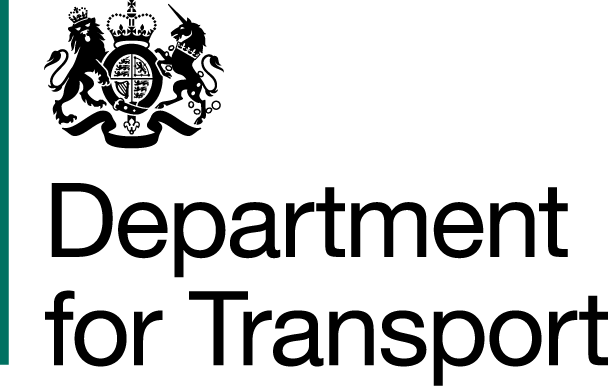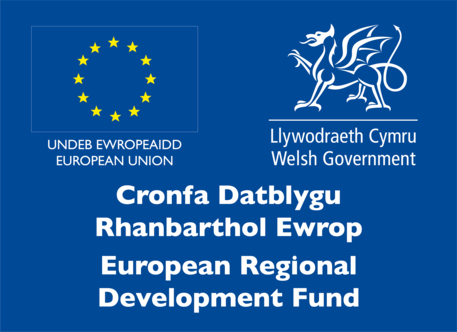TfW Rail Limited Board Minutes - 25 June 2021
TfW Rail Limited - Board minutes
25 June 2021
13:00 - 17:00
Location: online
Attendees
Members: James Price (Chair); Peter Strachan; Heather Clash; Marie Daly; Jan Chaudhry; and Alexia Course.
In attendance: David O’Leary; Jeremy Morgan; Colin Lea (item 8); Stephanie Raymond (item 10); Andy Slater and Rob Hale (item 14).
Part A
1. Apologies for Absence
None.
2. Notice of Quorum
A quorum being present, the Chair welcomed everyone to the meeting and declared the meeting open.
3. Declarations of interest
None declared.
4. Safety Moment
There has been a significant rise in passenger numbers to/from Barry Island, particularly during school holidays and warm weather periods, making socially distancing to two metres increasingly difficult and prompting negative media coverage. The Board were advised of mitigating actions being taken around enhanced on-train and station-based security; additional crowd management staff and bespoke queuing systems; strengthened and additional trains where possible; strategically placed standby buses to support capacity; a 20-minute frequency shuttle bus running express between Cardiff Central and Barry Island; and enhanced communications.
REDACTED
5. Customer moment
The Board were briefed on a recent project to raise a flood-susceptible bridge near Machynlleth. The project was completed by effective team-working with detailed plans put in place to enable delivery of a robust timetable both on the Cambrian and Mainline using the 158 Fleet, whilst also allowing Network Rail to complete the much-needed work on Black Bridge.
6. Minutes and Actions of Previous Meeting
The minutes from the meeting 27 May 2021 were approved as a true and accurate record.
The Actions Log was noted with several items to be covered during the meeting.
7. Managing Director’s report
REDACTED
The Board also discussed the importance of conductors carrying out ticket-checks on trains which is vital for revenue protection. Currently, conductors cannot be instructed to walk through the saloons and the decision on whether to or not is through a dynamic risk assessment based on the number of people on the train. However, more conductors are becoming involved in trials to identify a workable solution.
There has been an increase in social disorder incidents. The matter has been discussed with other Train Operating Companies and the issue appears to be a post-lockdown phenomenon across the country. Talks have also taken place with the British Transport Police to identify suitable mitigating actions.
Due to technical issues affecting entry into service, only a small number of the eight Class 769s have been in service at the same time over the last few weeks. Modifications are causing problems in several areas and the use of specialist contractors has been extended to identify the root causes. There is confidence that the issues will be resolved, but frustration at the length of time to reach satisfactory reliability levels. The lack of Class 769s is currently the biggest handicap to delivering a full deployment of carriages in line with the current aspirations. The unacceptable level of issues with the Class 769s has been formally shared with the fleet owner and a process is in
place to recover some costs. The Board were informed that a plan has been produced for 769 remediations [Action: Jan Chaudhry to circulate].
The Board were reminded that Mark IVs have entered service, which generated good customer feedback and positive media coverage. The Board wished to express its thanks to the teams involved in the work on the Mark IV project.
Early experience in commissioning and crew training runs indicates that the fuel range of the Class 230s may be 500 miles, rather than the assumed 800 miles in the unit diagrams. This is now subject to an investigation to find a fueling solution which will take account of learning from the recent development of the Rhymney refuelling depot.
Work continues to identify a suitable location for the northern area training facility with several options being explored. However, a short-term solution for the simulator has been identified. The Board were keen to finalise a solution by the next Board meeting.
8. KPI deep dive
Colin Lea joined the meeting to discuss Key Performance Indictors including cancellations and Passenger Time Lost (PTL). The way cancellations are measured will remain largely unchanged, but work is underway exploring how to take account of pre-planned cancellations. The Board suggested exploring the merits of weighting pre-planned cancelations as the impact is more significant at certain times of the day and on certain routes, or to record, report and review as a separate measure for the Board. The Board also emphasised the need to factor in the impact on the customer. It was agreed to explore how pre-cancellations could be factored into Wavelength and other customer metrics [Action Colin Lea and David O’Leary].
The PTL measure is under review. The Board was agreed that the fundamental underpinning principle of the metric should remain.
9. Safety report
The majority of safety indicators for rail period 2 were within prediction, leading to a continuation of improving MAAs in several areas. There were no specified injuries to the workforce, although workforce injuries exceeded the predicted target. The Fatality Weighted Index score remained within the predicted figure, with no RIDDOR specified injuries and no Non-Workforce Direct to Hospital events.
There was one Cat A SPAD in the period, with this being the sixth consecutive period where TfW Rail SPADs are ahead of the predicted figure for 2021. There were no train dispatch irregularities recorded in the period, which is the case for the last five consecutive periods. All required safety investigations were completed within the period.
The Safety Plan has been agreed and is in operation and will be reviewed at the quarterly Board safety meeting on 13 July.
The roll-out of Body Worn Cameras is progressing well but several issues require resolution.
10. Management Accounts
Stephanie Raymond joined the meeting. Deep dives have been undertaken to review the FY 2021-22 budget with findings consolidated to ensure both TfW Rail and TfW are aligned, with a particular focus on resources [Action SR to circulate findings].
REDACTED
The Board emphasised the need to ensure that every effort is made to close out £4.7 million Schedule 4 claims to Network Rail.
Capex subsidy required was £2.8m, which is £0.8m less than budgeted and primarily linked to the on-going revision of budgeted capital spend. The Board were keen to develop a metric to better understand the overhead costs associated with capital projects against project delivery costs.
Part B
REDACTED
12. Revenue and growth
David O’Leary presented a commercial activity update. The previous period was generally good versus budget, with strong growth across most routes. Only ticketless travel was behind target although it has improved for two consecutive periods.
The initial growth focus will therefore be on reducing ticketless travel rather than growing base demand. Gateline coverage versus plan improved to 91.9% (unweighted) in period 2 but remains at just 63.8% versus operational hours (weighted). A focus on improving Gateline rosters would likely yield improvements and a workstream is underway to address the issue. Restoration of all business-as-usual activity on-train activity has been budgeted for Autumn 2021 which will be critical to reducing ticketless travel.
A Network Growth Steering Group has been established to examine passenger behaviour in the context of: recovery from covid and the need to address challenges around traditional modelling approaches; differentiated recovery between leisure, commuting and business; the continuance of working from home; and the affordability of public transport. Work is also underway to better understand how current and potential passengers can be influenced. Several enabling initiatives are in place around pricing, integrated transport, retail and ticketing, revenue protection, customer experience, marketing, property and community rail.
13. Ebbw Vale enhancements - quadripartite contract development
The Board noted the intention of TfW and TfW Rail to enter into a quadripartite agreement with Welsh Government and Blaenau Gwent CBC for the funding of rail enhancement works on the Ebbw Vale line Enhancement.
14. New fleet introduction
Andy Slater and Rob Hale joined the meeting to outline the process of introducing new fleet into service with particular focus on the safe integration of rolling stock.
The Board were informed that lessons are being learnt from other UK Train Operating Companies with experience of working with TfW’s new rolling stock manufacturers.
15. Rhymney depot lease
AIW is to grant TfW Rail a lease of the light maintenance depot at Rhymney No. 4 Siding for a term of five years. The depot access conditions and agreement are still to be developed and set by AIW with ORR approval. The Lease provides TfW Rail with an opportunity to review and comment on such matters prior to finalisation.
The Board approved entering into the Rhymney Depot Lease.
The Board also agreed that a lease proforma should be developed [Action: Jason Howells and Alexia Course].
16. Rail Covid Assurance Audit
The Board noted an audit report on covid mitigation management, customer interaction and behaviours.
17. Any other business
None
The Chair thanked everyone for their attendance and participation.



